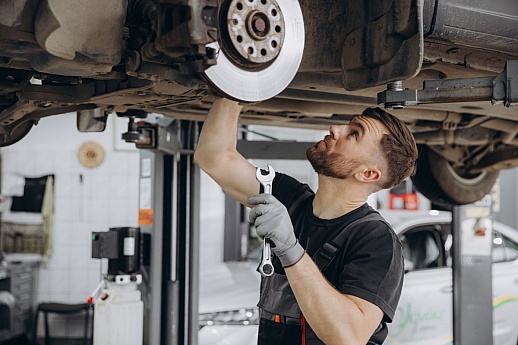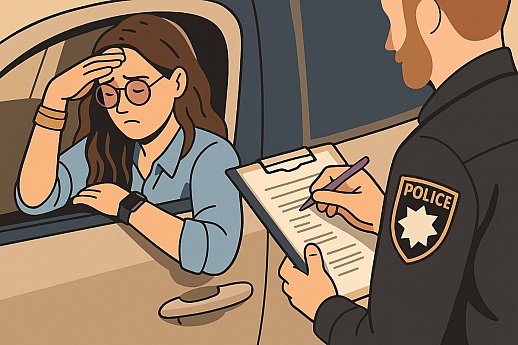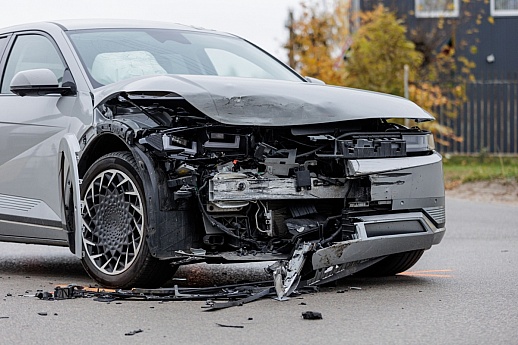Can You Get Car Insurance Without a Driver's License?
Picture this: you own a vehicle but don't have a driver's license. The question now racing through your mind is whether you can secure car insurance without a driver's license.
While the short answer is yes, car insurance without a driver’s license may come with some strings attached. In this blog post, we'll explore why someone might find themselves in this situation and, more importantly, reveal the options available to them.
Can You Insure a Car Without a Driver's License?
The short answer is yes, you can insure a car without a driver's license. However, obtaining auto insurance without a license will likely be more complicated and expensive than getting insurance when you have a valid license.
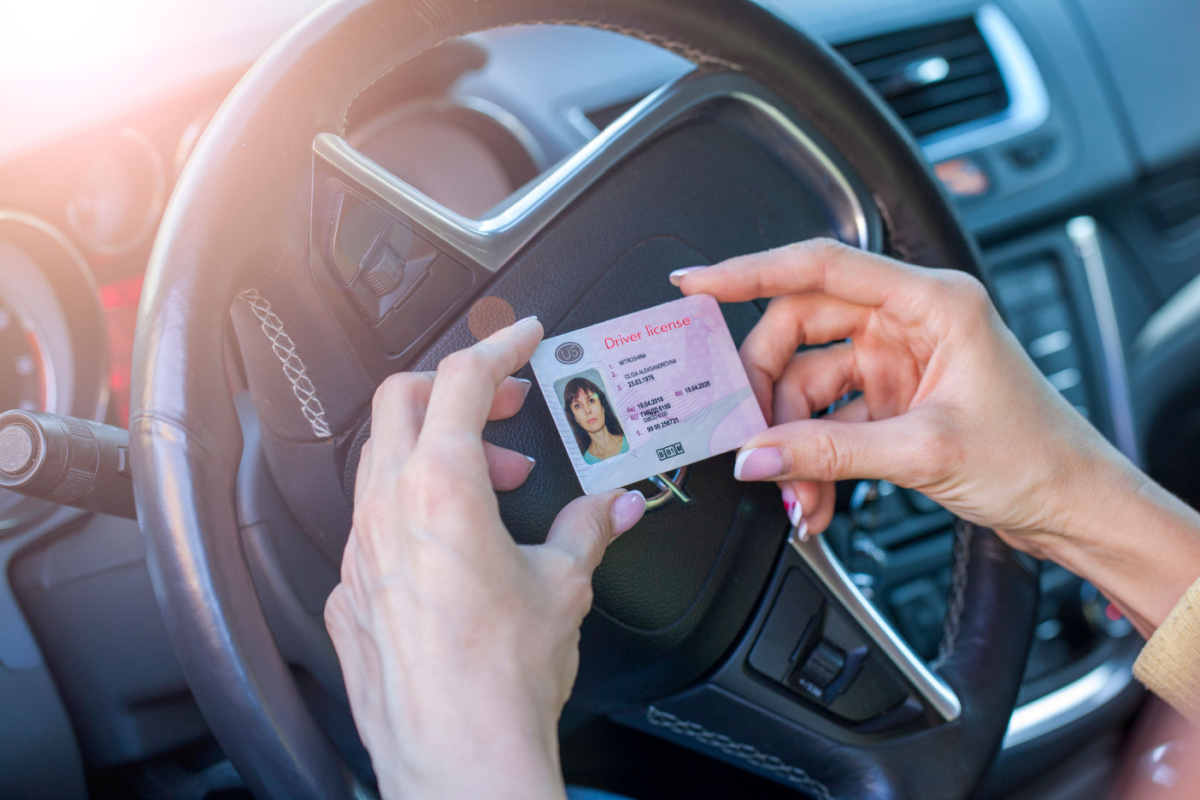
This is because car insurance companies use your driving record and history as one of the primary factors in determining your rates. Without a license, you don't have a driving record for insurers to assess your risk as a driver. That's why you might need to consider a no-license car insurance policy.
Why You Might Need to Get No License Car Insurance
You might need to get car insurance without a driver's license for several reasons. Let's take a look at some of the most common scenarios.
You Need to Register Your Car
If you own a car, you'll need to register it with your state's Department of Motor Vehicles. A lapse in car insurance coverage can cause rates to be higher later. This is because insurance companies consider a driver's insurance history when determining rates, and a driver without insurance is viewed as a higher risk. If you don't have a driver's license, you may still be able to register your vehicle by obtaining a "non-driver ID" from your state's DMV.
You Are Not Fully Licensed
If you're a new driver and only have a learner's permit, you may still be able to get car insurance without a full driver's license. First, however, you'll need an insurance company willing to work with you. For example, some insurers may require adding you to a parent or guardian's policy, while others may offer policies specifically designed for new drivers.
Another Person Will be Driving Your Car
If you own a car but don't have a driver's license, you may want to insure it so that a family member or friend can drive it on your behalf. This is especially common for elderly individuals who may no longer be able to drive themselves but still need to maintain their vehicle for transportation. In this case, the person driving the car must be listed as the primary driver on the insurance policy you obtain.
You Are Insuring Someone Underage
If you have an underage child with a license, they will likely not be able to obtain car insurance coverage on their own. As a result, you will need to obtain car insurance under your name and add them to the policy. Unfortunately, it will be more difficult and expensive if you don’t have a license yourself. However, this may only be temporary until your child turns 18.
You Own Vintage or Collector's Cars
If you own a vintage or collector’s car and do not have a driver's license, you can still obtain car insurance through a policy specifically designed for non-licensed drivers. Many insurance companies offer specialized policies for vintage or collector cars that provide coverage for these unique types of vehicles.
These policies may be less expensive than standard car insurance policies because they often restrict how often the car can be driven and where it can be driven. Sometimes, the vehicle may only be driven for special events or car shows.
Your License Has Been Suspended or Revoked
Getting car insurance can be more challenging if your license has been revoked or suspended, but it's not impossible. The process typically involves obtaining a non-standard or high-risk auto insurance policy for drivers with a poor driving record or a suspended or revoked license. You may also be required to file an SR-22 with your state, depending on the reason for your license suspension or revocation.
An SR-22 is a certificate of financial responsibility that proves you have the minimum amount of insurance required by law. It is typically required when a driver has had their license suspended or revoked due to traffic violations, such as DUIs, reckless driving, or multiple traffic offenses within a short period. It can also be required for drivers who were involved in accidents without sufficient insurance.
However, not all insurance companies offer SR-22 filing services, so you may need to shop around for an insurer that does. In addition, obtaining an SR-22 can lead to higher insurance premiums due to the high-risk status associated with drivers who require this form.
The duration for which you need to maintain an SR-22 varies depending on the state and the nature of the offense, but it generally ranges from one to five years. If you cancel or fail to maintain the required insurance coverage during this period, your insurance company must notify the state. This can result in further penalties, including an extension of your license suspension or revocation.
Consequences of Driving Without a License
Driving a car without a license is illegal and can have severe consequences, including the following:
- Legal penalties: Driving without a license violates the law and can result in legal penalties such as fines, license suspension or revocation, and even imprisonment in some cases.
- Financial consequences: If you cause an accident while driving without a license, you may be personally responsible for any damages or injuries you cause. This can result in significant financial consequences, including lawsuits, medical expenses, and property damage.
- Increased insurance rates: If you are caught driving without a license, insurance companies may consider you a high-risk driver, which can result in higher insurance rates or even a denial of coverage.
- Difficulty getting a license: If caught driving without a license, obtaining a driver's license in the future can be more challenging. This is because driving without a license is considered a violation of traffic laws and can result in a criminal record, impacting your ability to obtain a driver's license or other forms of identification.
- Safety risks: Driving without a license can be dangerous, often indicating a lack of training and experience behind the wheel. This can increase the risk of road accidents, injuries, and fatalities. In fact, a study published by the AAA Foundation of Traffic Safety found that drivers without a valid license are responsible for 20% of all automobile accidents.
Can You Get Insurance with a Suspended or Revoked License?
If your driver's license has been suspended or revoked, you may still be able to get car insurance, but it can be more difficult and expensive. In many cases, you'll need to obtain an SR-22 certificate, which is a document that proves you have the minimum amount of insurance required by law. You'll typically need to maintain this certificate for a certain period before your license can be reinstated.
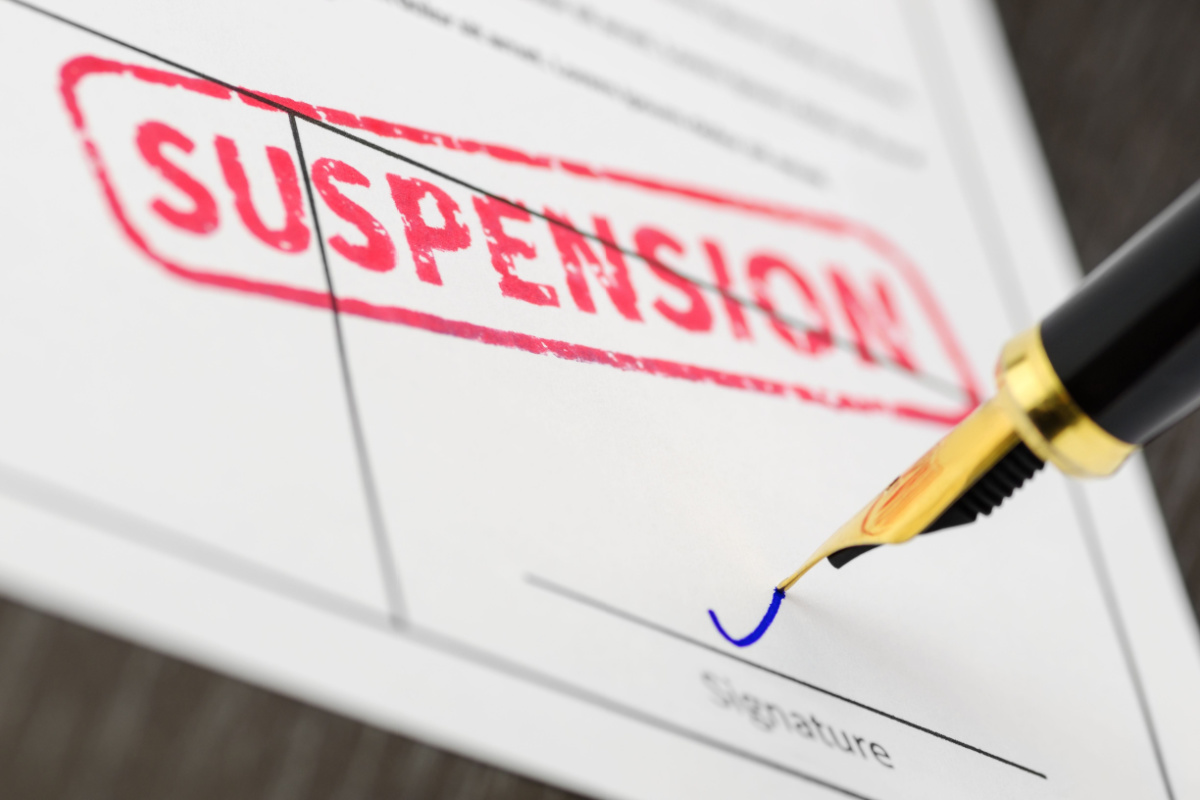
The length can vary depending on the state and why you were required to have one. Generally, you will need to maintain SR-22 insurance for at least three years, although some states require more extended periods.
How Can You Get Car Insurance with No License?
A few options are available if you don't have a driver's license but still need car insurance. Let's take a look at some of the ways you can get car insurance with no license.
Find Insurance Carriers That Offer It
Finding car insurance for drivers without a valid license can be challenging. However, there are several strategies you can try to find insurance carriers that offer this type of coverage.
One option is to conduct an online search for “car insurance no license” to identify carriers that offer coverage to drivers without a license. In most cases, larger national insurers likely won’t cover you. Nevertheless, you may still be able to find car insurance without a license through local insurance providers in your area. Make sure to compare car insurance quotes and no-license coverage options from at least three providers.
To compare your options, you can use car insurance comparison sites to view coverage options from top insurers side-by-side. You can input your information once and receive on-screen results in minutes with personalized quotes and coverage options.
Additionally, you can contact local insurance agents or brokers to see if they can refer you to a carrier that provides coverage to individuals without a license. Consulting with a broker or insurance agent can also help you take advantage of their expertise and connections in the industry.
Note that insurance carriers may consider drivers without a license riskier and require you to get high-risk coverage. High-risk coverage, or non-standard auto insurance, is a type of car insurance designed for drivers considered more likely to file a claim.
It's essential to understand that high-risk coverage typically comes with higher premiums than standard auto insurance, as the insurance carrier is taking on more risk by insuring a driver with a higher likelihood of filing a claim.
Exclude Yourself as a Primary Driver
As a car owner without a license, you can still secure auto insurance by excluding yourself as the primary driver. This option is particularly suitable if you don't plan to drive the car yourself but want to maintain insurance coverage for others that do.
To do so, the driver you list as the primary must live in the same household as you. The insurance premium may be influenced by the primary driver's age, credit score, driving record, and gender. You must also ensure that the primary driver listed on the policy has a valid driver's license and meets all state requirements.
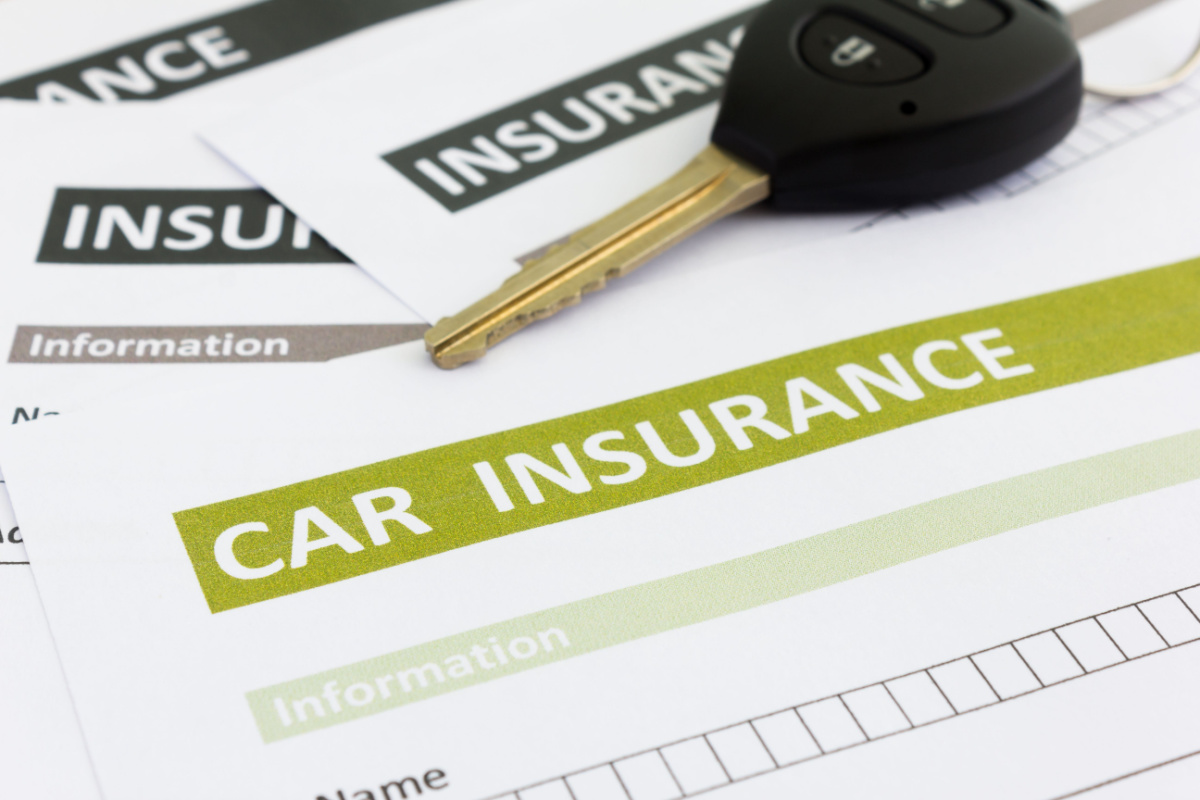
In most states, carrying minimum liability insurance coverage is mandatory. This type of coverage offers financial protection to the primary driver at fault for an accident. The insurance will cover bodily and property damage to the other driver and vehicle. Minimum coverage only covers the other driver's injuries.
You may need to consider additional coverages such as collision and comprehensive insurance to safeguard your vehicle against potential damage or loss due to theft, vandalism, or other incidents.
For example, collision coverage helps cover repair or replacement costs if your car is damaged in an accident involving another vehicle or a stationary object. Comprehensive car insurance, on the other hand, offers protection for damage caused by incidents other than collisions, such as theft, vandalism, natural disasters, or encounters with animals.
Get Parked Car Insurance
If you own a vintage or collector's car that you don't drive on public roads, you may be able to get "parked car" insurance. This type of insurance is designed for vehicles stored in a garage or other secure location and not driven on public roads. It can be an excellent option to protect your car against damage or theft while in storage.
Bottom Line
While getting car insurance without a driver's license is not always easy, it's certainly possible. Whether you are unable to drive or are insuring a car for someone who doesn't have a license yet, options are available to you. Your options may include excluding yourself as a primary driver or getting parked car insurance.
Comparing quotes from multiple insurance carriers is essential to ensure you get favorable coverage and rates. By researching and exploring your options, you can increase the chances of finding the right car insurance coverage to meet your needs.
No License Car Insurance FAQ
Here are some common questions and answers about getting car insurance without a driver's license:
How Much Does Car Insurance Cost Without a Driver’s License?
It can be challenging to calculate how much car insurance will cost without a license. This is because most insurance companies require a valid driver's license to estimate rates. However, if you can find a company that will insure you without a license, you may face higher premiums due to the increased risk that an unlicensed driver represents.
Of course, the exact cost of the policy will depend on various factors, such as your age, driving record, the type of car you have, and the level of coverage you choose. Generally, full coverage auto insurance with a license costs around $2,014 per year, whereas minimum coverage averages around $622.
What Kinds of Coverage Can I Get Without a License?
You can typically obtain the following types of coverage without a license:
- Liability coverage: This is the minimum insurance required by most states. It covers bodily injury and property damage caused by your vehicle in an accident. As you won't be driving the car, this coverage will apply to the primary driver listed on the policy.
- Collision coverage: This optional coverage helps pay for repairs or replacement of your vehicle in case of an accident involving another car or a stationary object. It applies to the primary driver and any other authorized drivers listed on the policy.
- Comprehensive coverage: This optional coverage protects your car from non-collision-related incidents, such as theft, vandalism, natural disasters, or animal encounters. Like collision coverage, it extends to the primary and authorized drivers.
- Uninsured/Underinsured Motorist coverage: This optional coverage offers protection if your primary driver is in an accident with a driver with insufficient or no insurance. It can help cover medical expenses, lost wages, and property damage.
- Personal Injury Protection (PIP) or Medical Payments (MedPay) coverage: These optional coverages help pay for medical expenses for the primary driver and any passengers in the event of an accident, regardless of who is at fault.
Will My Car Insurance Rates Go Down Once I Get My License?
Car insurance rates are influenced by various factors, including driving record, age, credit score, and location. When you obtain your driver's license, your insurance rates might decrease over time, but this is not guaranteed.
Generally, newly licensed drivers are considered inexperienced or high-risk drivers, which can initially result in increased insurance premiums. However, as you gain more driving experience and maintain a clean driving record over time, your perceived risk as a driver may decrease, leading to lower insurance rates.
Here are some factors that can contribute to lower insurance rates once you have your license:
- Maintaining a clean driving record: A record free of accidents, traffic violations, and other incidents will demonstrate responsible driving behavior, which could lead to lower premiums.
- Gaining driving experience: As you accumulate more years of driving experience, insurance companies may view you as a lower-risk driver, resulting in reduced rates.
- Completing driver education or defensive driving courses: Some insurance companies offer discounts for drivers who have completed safe driving courses, which can help lower your rates.
- Age: As you grow older and gain more experience, you may benefit from lower insurance premiums. However, this may not always hold true for older drivers, as rates could increase again due to age-related factors.
Keep in mind that other factors unrelated to your license status can also influence insurance rates, such as the type of vehicle you drive, the level of coverage you choose, and any available discounts.
Sources
- U.S. News. “What Is an SR-22?” Accessed on Aug. 9, 2023.
- Car and Driver. “Parked Car Insurance: Everything You Need to Know.” Accessed on Aug. 9, 2023.
- Diverse Insurance. “California Auto Insurance Without a Driver’s License?” Accessed on Aug. 9, 2023. (
- Insurance.com. “Car insurance with a suspended license.” Accessed on Aug. 9, 2023.

